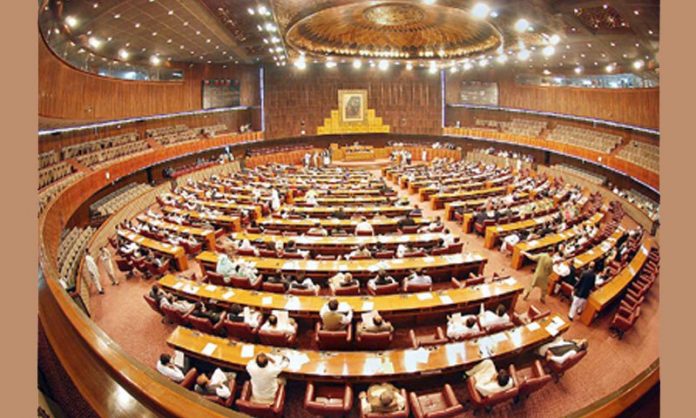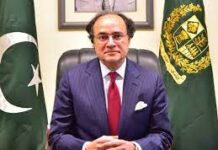ISLAMABAD: Except for the general elections held during the dictatorial rules, a systematic whispering campaign was always launched before every impending parliamentary polls that a technocrats’ government was being constructed to rule for the next three years, and a similar scenario is being bandied about at different levels even now.
It is believed that those who had been previously tossing around the dreamy idea, or who are now discussing it would have certainly gone through the Constitution and would have known that the basic document doesn’t provide for any such arrangement except governments elected by the people of Pakistan, and caretaker setups for a limited period of three months just to hold general elections.
The tenure of a federal or provincial interim setup, decided by the prime minister/chief ministers and opposition leaders, also can’t be extended under the Constitution.
The infamous doctrine of necessity can’t be invoked to form, sustain or justify prolongation of the period of a caretaker government, which is also disallowed to make long-term decisions and is only permitted to take short-term measures with the primary purpose of holding fair, free and impartial elections.
Any concept to have a technocrats’ government for any length of time and for any purpose is unconstitutional and illegal. The Constitution doesn’t allow its validation by the superior courts.
“Technocratic and undemocratic forms of governance had failed to deliver in the past as Pakistan could only progress and prosper under a democratic setup,” Prime Minister Shahid Khaqan Abbasi said amid the conspiracy-ridden atmosphere. It is not known whether or not he is aware of the whispering campaign, going on at different forums.
He might have in mind the government under Shaukat Aziz during Musharraf’s rule when he referred to the technocratic governance. But that too was not a purely technocrats’ setup because the PML-Q was its part and politicians dominated the then federal cabinet irrespective of their say in the decision-making process.
Abbasi stated in Karachi on Saturday that military dictatorship always halted progress of Pakistan. “The people of Pakistan should decide who they want in the government and who they don’t.
The masses have always elected political parties that have performed well for them. Leaders who do not perform well should be sent home.
But the process should be democratic and the people should decide,” he said and was all praise for landmark policies introduced by Nawaz Sharif as the prime minister.
However, the usually well-informed Mushahid Hussain Sayed asserted that the Supreme Court has buried the doctrine of necessity; the democratic system will continue; general elections will be held on time; and the army is not intervening.
Top military spokesman Maj-Gen Asif Ghafoor also rubbished the idea of technocrats’ government and ruled out imposition of martial law. As a whole, his presser was encouraging as it may help cool down the environment created by some enthusiastic agenda-driven elements.
He talked about the army remaining within the confines of the Constitution and law and stated that every decision was taken by the prime minister and there was no danger to democracy from the Pakistan army.
A slogan uninterruptedly raised by certain political and other circles before proclamation of every martial law and prior to each general polls had been: accountability first and then elections.
Another perception that was engineered before Pervez Musharraf imposed martial law in October 1999 and even before the introduction of the earlier military rules was that Pakistan’s economy was in a worst shape; the country was about to collapse economically in case the present democratic structure remained in place; and the democratically elected government was responsible for this “disaster”.
A similar talk is under way for over the past couple of months, which was generated and gained currency after Nawaz Sharif was deposed as the prime minister by the Supreme Court in its July 28 judgment in the Panama case. A set of ‘economic experts’, who are staunchly opposed to the present regime, and had closely worked in high positions during the Musharraf era, are in the forefront to paint a dismal economic picture and hold the PML-N responsible. They are also egging on establishing a technocrats’ government in which all of them will surely enjoy cabinet positions to put Pakistan on the ‘right trajectory’.
As Nawaz Sharif was in the driving seat, the economic ‘catastrophe’ that is being now mentioned with ferocity was nowhere in sight. It is incredible that the economic situation became so weird in a short span after his ouster.
Whenever in the past the talk about a technocrats/national government was spawned openly or behind closed doors, it could never be translated into reality for reasons best known to those who sponsored it.
Obviously, no role is envisaged in such a perceived setup for any political party regardless of its standing. Therefore, it is natural that every political force worth the name will be opposed to it. This may be one of the reasons discouraging the promoters of such an idea to implement it.
A huge inherent incapacitation and impediment a technocrats’ or national government is bound to certainly face from day one is that it has no political roots whatsoever like successive military dictators, who remained engaged throughout their rule in contriving political legitimacy, using all their energies to achieve it. But they always lack such acceptability and are only supported by those whom they accommodate in their governments.
Courtesy: The News





